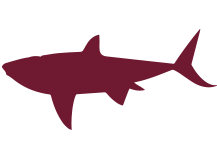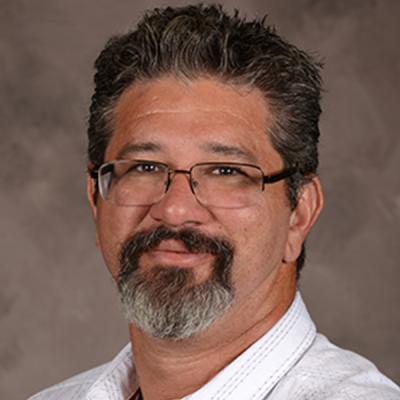The mission of Florida State University Panama City's Advanced Science Diving Program (ASDP) is to educate and support excellence in underwater research. To this end, the ASDP provides academic courses in support of other university programs, develops and delivers professional dive training programs, engages in industry partnerships with public and private organizations, and conduct a variety research and outreach programs in the furtherance of safe and productive scientific diving. The core function of the program is to train and educate university students, faculty, and staff, as well as members of other agencies involved in maritime work, in the techniques related to scientific diving according to the standards established by the American Academy of Underwater Sciences (AAUS).
FSU Panama City is an active member and supporter of AAUS and complies with all of its policies and procedures. The ASDP operates under strict standards for training that allows a working reciprocity between us and other underwater research facilities around the globe, specifically organizational members of AAUS.

Open doors to Scholarship opportunities
Students enrolled in at least 3 hours of a diving class are eligible for the Bob Barth Underwater Research Scholarship.

Earn professional dive certifications
Dive certifications for students in ASDP courses are provided through the International Association of Nitrox & Technical Divers (IANTD)

Gain Real-world experience
Students in dive courses may have the option to participate in additional research opportunities as they become available.

discover new friends, a new passion
Students who are dive certified may use equipment, wet suits and air refills for free through the Scuba, Hyperbaric and Recreational Club (SHARC), which plans recreational dives.
Advanced Science Diving Program curriculum
Students completing the undergraduate or graduate Advance Science Diving program curriculum, as listed below, will earn scientific diver accreditation through the American Academy of Underwater Sciences, which will enable students to take advantage of external diving scholarship and research opportunities.
Labs now offered at FSU Panama City or FSU Tallahassee campuses.
Undergraduate Advanced Science Diving students must:
- Complete the required number of undergraduate credit hours (8) from the approved list of courses.
- Earn a grade of “C minus” or higher in each of the undergraduate courses and labs.
ISC 3062 - Introduction to Underwater Investigation (3) presents the history, principles of basic hyperbaric science diving, physics and physiology as they relate to diving. This course provides the theoretical foundation for individuals preparing to be divers.
ISC 3062L - Introduction to Underwater Investigation Lab (1) presents the principles and practice of compressed-gas as a life-support system for underwater hyperbaric exposure. This course is designed to develop proficiency in the basic skills required to perform safe underwater operations. Certifications earned: Open Water and Advanced Open Water Diver.
Students' transcripts will reflect academic course work only. Professional Scuba certifications, earned through course work, are issued through the International Association of Nitrox and Technical Diver (IANTD) and the American Academy of Underwater Scientists (AAUS). These diving certifications are not credentials issued by FSU and as such will not be documented on the transcript. Additionally, the separate tests or requirements for diving or scientific diver certification, as articulated by IANTD and AAUS, will also not appear on a student's transcripts.
ISC 3063 - Scientific Underwater Investigation (3) builds upon the Introduction to Underwater Investigation course by providing the technology to collect data in an underwater environment according to the scientific method. The course the techniques used in science disciplines that function underwater.
ISC 3063L - Scientific Underwater Investigation Lab (1) builds upon the Introduction to Underwater Investigation Laboratory course by providing the tools and techniques to collect data in an underwater environment for prolonged periods of time. The underwater data collection techniques use traditional underwater technology and techniques for data gathering related to scientific disciplines. Certifications earned: Enriched Air (EANx) Diver and American Academy of Underwater Sciences (AAUS).
Students' transcripts will reflect academic course work only. Professional Scuba certifications, earned through course work, are issued through the International Association of Nitrox and Technical Diver (IANTD) and the American Academy of Underwater Scientists (AAUS). These diving certifications are not credentials issued by FSU and as such will not be documented on the transcript. Additionally, the separate tests or requirements for diving or scientific diver certification, as articulated by IANTD and AAUS, will also not appear on a student's transcripts.
Graduate Advanced Science Diving students must:
- Complete the required number of graduate credit hours (8) from the approved list of courses.
- Earn a grade of “B” or higher in each of the graduate level courses and labs.
ISC 5060 - Introduction to Underwater Investigation (3) presents the history, principles of basic hyperbaric science diving, physics and physiology as they relate to diving. This course provides the theoretical foundation for individuals preparing to be divers.
ISC 5060L - Introduction to Underwater Investigation Lab (1) presents the principles and practice of compressed-gas as a life-support system for underwater hyperbaric exposure. This course is designed to develop proficiency in the basic skills required to perform safe underwater operations. Certifications earned: Open Water and Advanced Open Water Diver.
Students' transcripts will reflect academic course work only. Professional Scuba certifications, earned through course work, are issued through the International Association of Nitrox and Technical Diver (IANTD) and the American Academy of Underwater Scientists (AAUS). These diving certifications are not credentials issued by FSU and as such will not be documented on the transcript. Additionally, the separate tests or requirements for diving or scientific diver certification, as articulated by IANTD and AAUS, will also not appear on a student's transcripts.
ISC 5061 - Scientific Underwater Investigation (3) builds upon the Introduction to Underwater Investigation course by providing the technology to collect data in an underwater environment according to the scientific method. The course the techniques used in science disciplines that function underwater.
ISC 5061L - Scientific Underwater Investigation Lab (1) builds upon the Introduction to Underwater Investigation Laboratory course by providing the tools and techniques to collect data in an underwater environment for prolonged periods of time. The underwater data collection techniques use traditional underwater technology and techniques for data gathering related to scientific disciplines. Certifications earned: Enriched Air (EANx) Diver and American Academy of Underwater Sciences (AAUS).
Students' transcripts will reflect academic course work only. Professional Scuba certifications, earned through course work, are issued through the International Association of Nitrox and Technical Diver (IANTD) and the American Academy of Underwater Scientists (AAUS). These diving certifications are not credentials issued by FSU and as such will not be documented on the transcript. Additionally, the separate tests or requirements for diving or scientific diver certification, as articulated by IANTD and AAUS, will also not appear on a student's transcripts.
Students who are interested in earning an undergraduate or graduate Underwater Crime Scene Investigation (UCSI) certificate, please refer to the UCSI Certificate webpage for more information.
External diving scholarship opportunities
- The AAUS Foundation awards several scholarships to graduate students engaged in, or planning to begin, a research project in which diving is an important research tool or the research topic is diving science. This includes awards for travel, equipment and research expenses. The proposal deadline is June 30th. Learn More
- The Academy of Underwater Arts & Sciences (AUAS) is overseeing applications to the Zale Parry Scholarship Program. FSU graduate student Nate Spindel was awarded this scholarship in 2018. The program is open to those candidates who are currently enrolled in a graduate school program (Masters or Ph.D.) in the diving fields of study (Marine Conservation and Education, Diving Medicine and Hyperbarics, Ocean Engineering, and Underwater Archeology). Due to the pandemic, applications are not being accepted at this time. You can monitor the status of the scholarship on the AUAS website. Learn More
- The Women Divers Hall of Fame is offering 20 training grants for open water dive training. Each grant is for $1000. Training grants are available to provide funding for underwater training and/or including scuba equipment. The deadline for applications is May 31st. Learn More
- Our World Underwater Scholarship Society awards a Rolex North American Scholarship to provide a hands-on introduction to underwater and aquatic-related endeavors for a student diver considering a career in an underwater-related discipline. The range of experiences may include active participation in field studies, underwater research, scientific expeditions, laboratory assignments, equipment testing and design, photographic instruction, and other specialized assignments. Applications are due December 1st. Learn More
- PADI Foundation Scholarships encourages and supports research and education related to aquatic environments. Applications are accepted beginning November 1st and are due January 10th. Learn More




